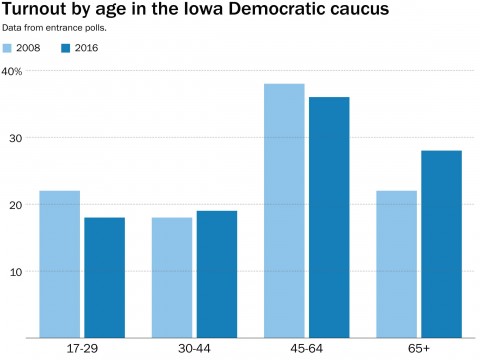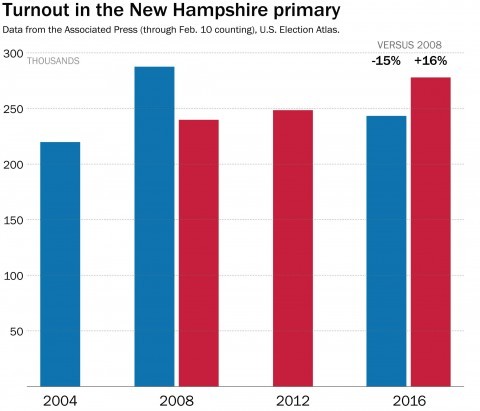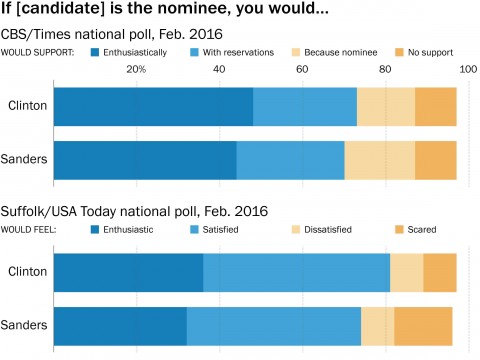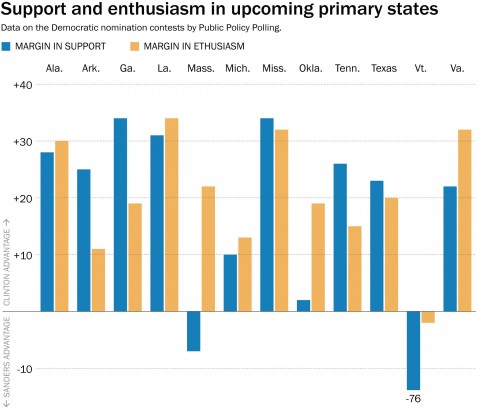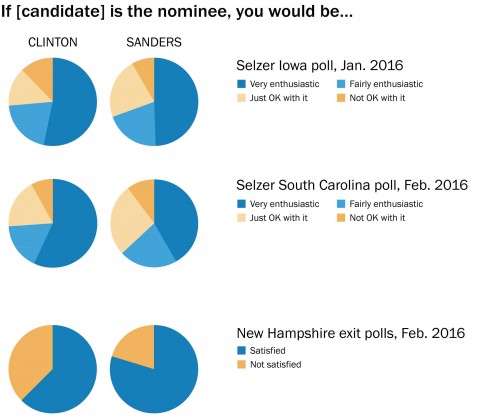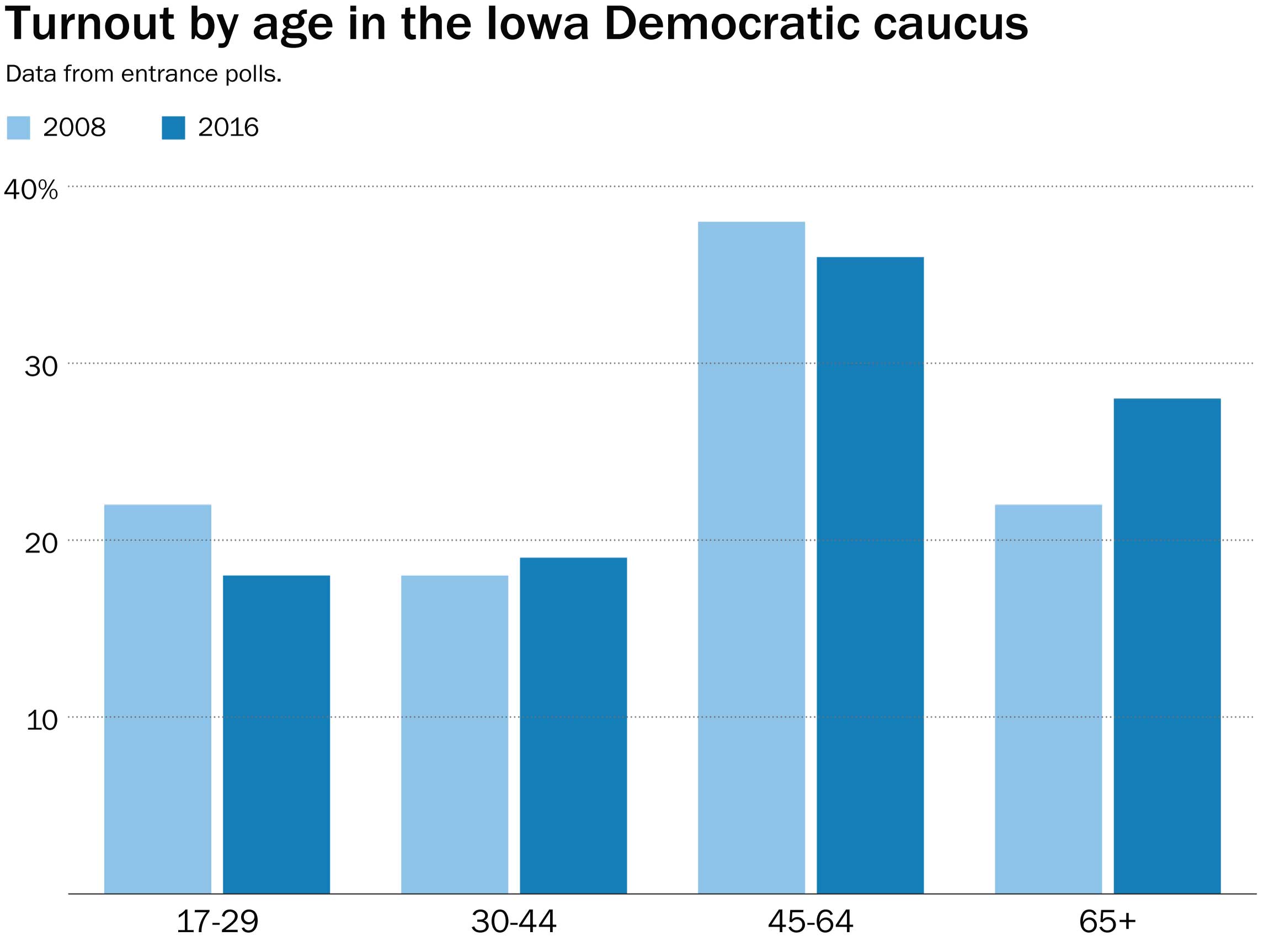
Bernie Sanders’s supporters are passionate — but maybe not as much as you think
Of all of the clumps of data that’s come roaring down the aqueduct since voters began actually voting, it’s this one that’s stuck with me.
That contrasts turnout by age group in the 2008 Barack Obama-Hillary Clinton-John Edwards Iowa caucus with this year’s, in which two of the names were replaced. Those youngest voters turned out much less heavily and those older voters turned out much more — and so the candidate preferred by the older voters (Clinton) narrowly beat the candidate preferred by the younger (Bernie Sanders).
It wasn’t supposed to be like this. Granted, Sanders overperformed against the polls, but he didn’t Marco-Rubio overperform. But this is Bernie Sanders, the guy with the huge crowds and the millions of individual donations and who has lopsided levels of support among various constituencies. Shouldn’t those constituencies be turning out more?
In New Hampshire, turnout was down from 2008 overall, as it was in Iowa. Sure, Sanders was expected to — and did — win by a mile. But turnout still fell 15 percent.
Sanders and Clinton are running fairly close to one another at this point, so it’s not a big surprise that they see about-equal levels of enthusiasm for their possible nominations. But in two recent national polls, one from CBS and the New York Times and the other from Suffolk University and USA Today, Clinton gets slightly higher scores.
Clinton also has a lead in these polls, suggesting that there might be a correlation between support and enthusiasm.
There’s more evidence to that effect. Public Policy Polling looked at a slew of upcoming primary states, identifying who voters prefer as a candidate and how enthusiastic they are about their support. These are places that Sanders has spent less time, and he’s less well-known in most of them (save Vermont, which breaks the scale below), but the pattern is clear: Clinton sees more support and more enthusiasm than Sanders in most places, with the two things again being correlated.
If you look at polls conducted by Selzer & Co. for Bloomberg before Iowa and before next week’s Democratic contest in South Carolina, it’s Clinton who sees an advantage in enthusiasm from voters — including a large advantage in South Carolina, where she’s leading by a lot and a smaller one in Iowa, where they tied.
In New Hampshire, exit polls showed a big advantage for Sanders — and he won big.
The point isn’t that Clinton is winning the enthusiasm wars, it’s that Sanders isn’t. The two are seeing about the same levels of enthusiasm from their bases of support, which is a disadvantage for Sanders, whose base of support so far has been among groups that tend to vote less regularly.
Sanders would have won easily if he’d seen even a small uptick in support from that youngest group of voters in Iowa. With another contest in Nevada on Saturday that should be close, Sanders will need his base of support to turn out heavily. Based on the buzz around his campaign, after all, you’d expect them to come out in droves.
But in Iowa at least, they didn’t.

